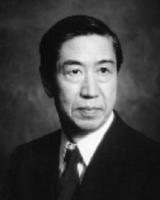Aleksandr Luria: biography of the pioneer of neuropsychology
Luria's name is widely known to all those who are engaged in the world of neuropsychology and neurology. And is that Aleksander Romanovich Lúriya is considered the main father of modern neuropsychology, combining interest in mental processes and brain physiology.
In this article we present a brief biography of this important author and researcher of the human brain.
- Related article: "History of Psychology: main authors and theories"
Short biography of Aleksander Luria
Aleksander Romanovich Lúriya (known as Aleksandr Luria, Aleksander Luria or Alexander Luria) was born on July 16, 1902 in Kazan, Russia. Son of the dentist Eugenia Victorovna Hasskin and the doctor Roman Albertovich Lúriya, he grew up in a wealthy family of Jewish origin in which he was educated in various languages.
From his younger years he began to train in the field of knowledge that he himself would help to expand. Let's see how it happened.
- It may interest you: "The 7 best phrases of Alexander Luria"
Education and first steps
The formation of Luria began at the age of seven, this formation being interrupted by the Russian Revolution. At sixteen he would be accepted to Kazan University, from which he graduated in 1921.
His first interests were circumscribed in the field of social and psychology, being especially interested in the field of psychoanalysis. In fact, in 1922 he helped create the Kazan Psychoanalytic Society, dealing with his early works on gender differences in clothing. Interest in the evaluation of mental problems and the effects of fatigue would also arise in him. Other authors that he would admire and follow closely were Pavlov and Bechterev.
The influence of Vygotsky
Luria met Vigotsky in 1924, at a Congress of Psychoneurology held in Leningrad. Together with him, he investigated the interaction between perceptual processes and culture at the time of generating higher mental functions in adults, with special importance of language.
Would begin to emerge interest in brain areas and the location of different functions, criticizing the prevailing localizationism and proposing the idea of complex functional systems in which the functions depend on networks of dispersed connections and not only on a region specific.
- Related article: "Lev Vygotsky's Sociocultural Theory"
World War II and specialization in neurology
After Stalin seized political control and different political purges began, he was forced to abandon the sociocultural study, and would focus on studying medicine with a specialization in neurology.
His interest in the area of language continued and he would explore this area often, especially in the field of aphasia and its relationship to thought.
Luria worked in Kisegach during WWII, and he frequently observed the effects of brain tumors and lesions. It was at this time that the foundations of neuropsychology were born by linking injuries with cognitive and language problems.
After the war, Luria's work would focus on the development of language and thought, especially in children with intellectual disabilities.
Death and legacy
Luria passed away in Moscow on August 14, 1977, at the age of 75., of a heart attack.
Father of modern neuropsychology, Luria's legacy has allowed a better understanding of the brain function and the brain location of the various systems that allow certain functions.
Numerous evaluation instruments have been created based on criteria based on their work., in addition to allowing the development of techniques that allow to improve and recover functions in cases of brain injury.

